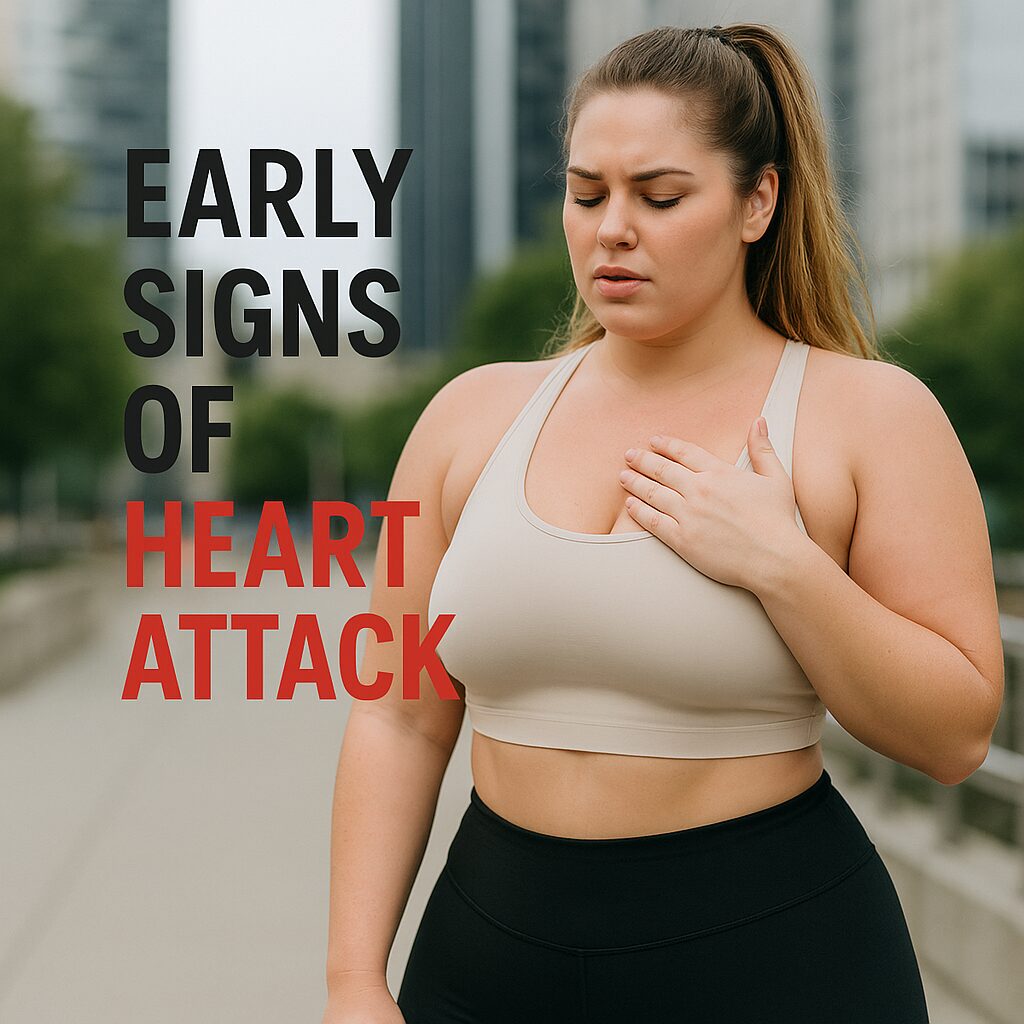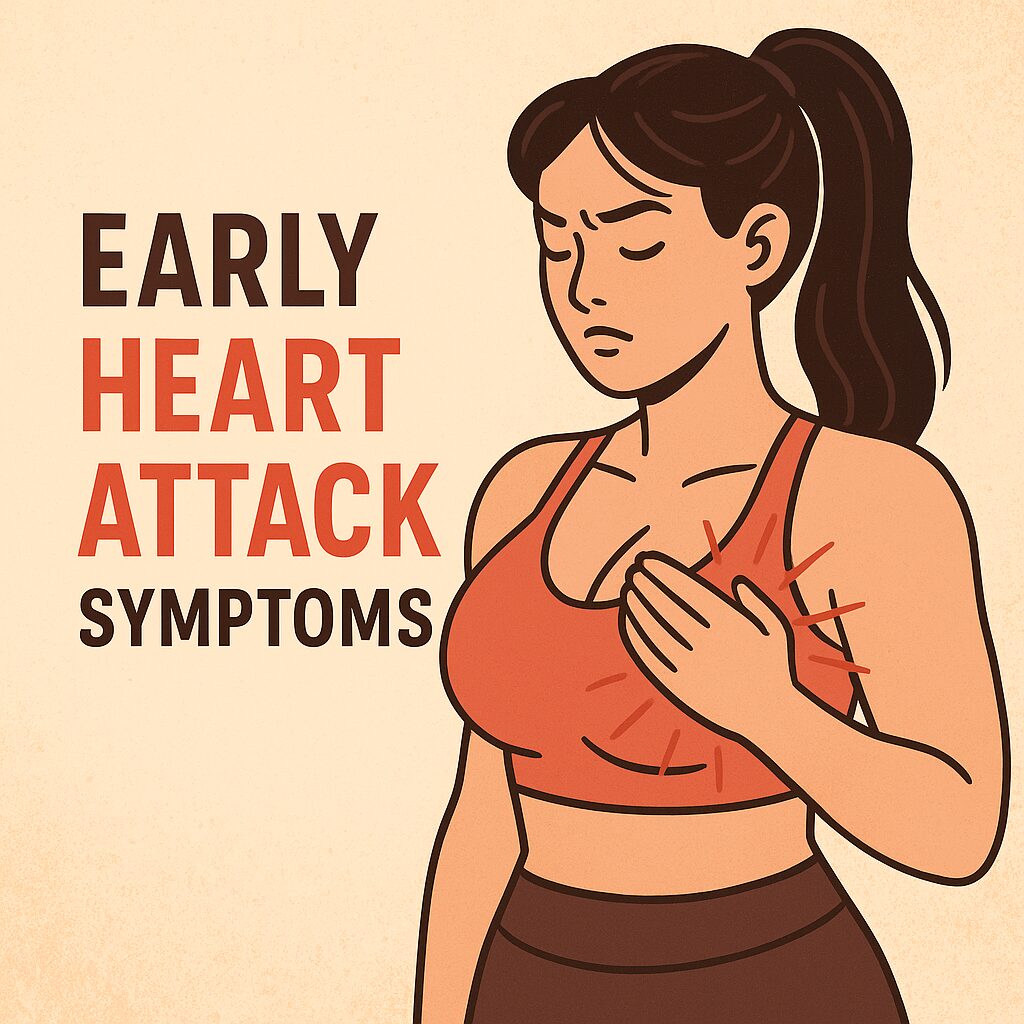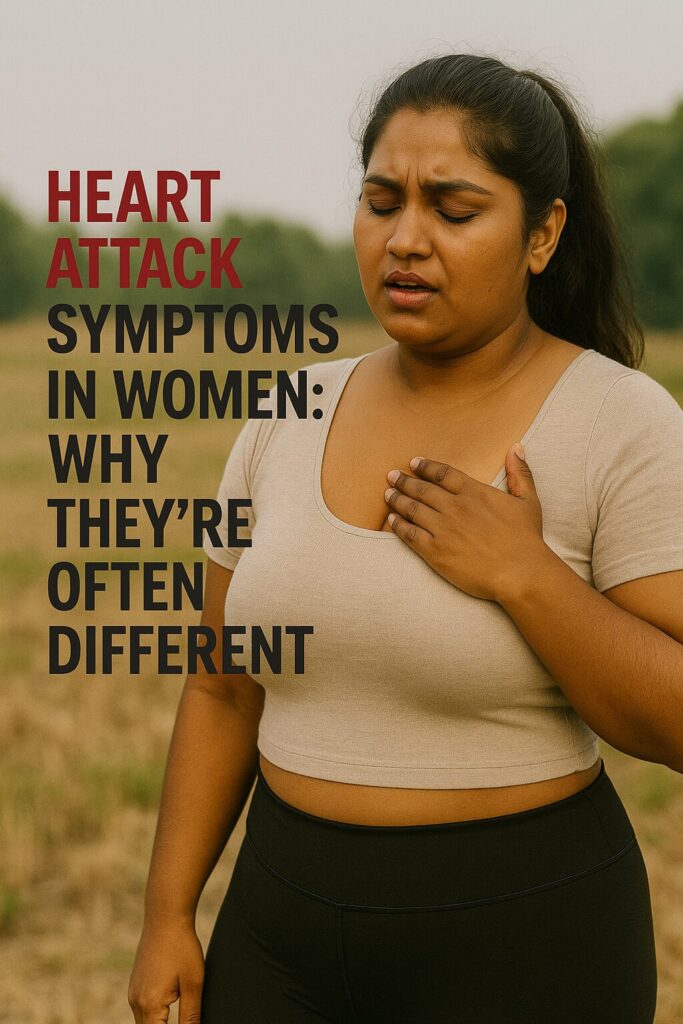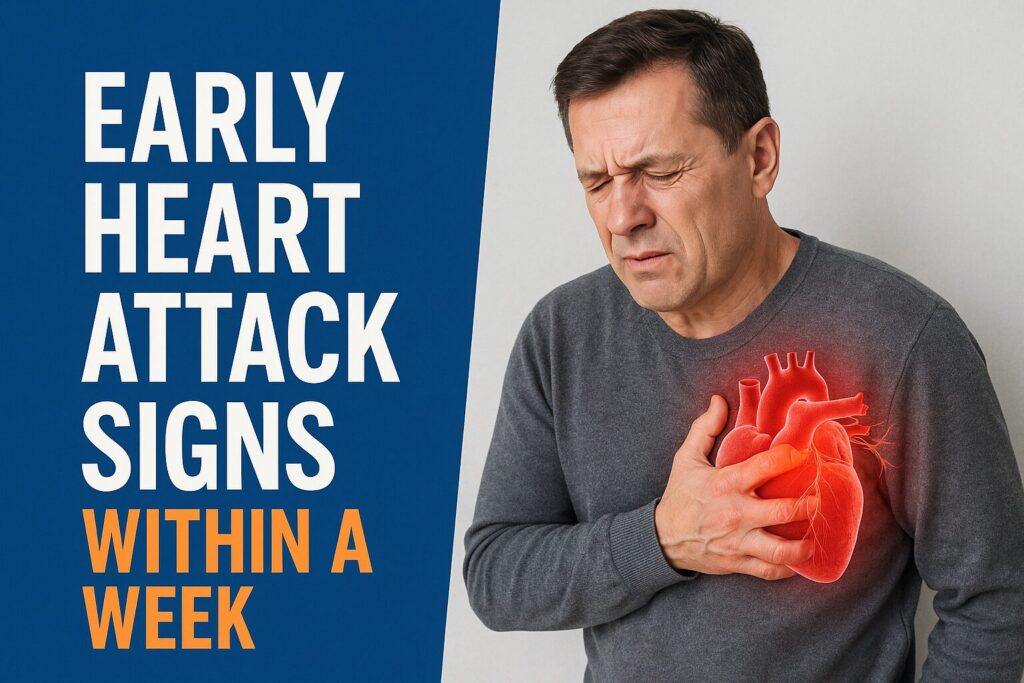Heart attack symptoms in woman can manifest differently than in men, with more subtle and less obvious symptoms. Research suggests that women often delay seeking help because they are unaware of these unique warning signs. Early detection is vital, and understanding these symptoms can save lives.

Doctor Studies Highlighting the Differences
- Journal of the American Heart Association Study (2020)
A study published in the Journal of the American Heart Association found that women are 50% more likely than men to have other symptoms such as nausea, fatigue and jaw discomfort in addition to chest pain during a heart attack. The study highlighted that these differences often lead to a delay in diagnosis. - Harvard Women’s Health Watch Report
Read Also: Top 5 Foods to Keep Your Heart Healthy
Harvard researchers have revealed that around 42% of women who suffered a heart attack did not report chest pain. Instead, symptoms such as back pain, shortness of breath and extreme fatigue were more common. Dr Alice Roberts, from Harvard Medical School, commented: “For too long, heart disease has been viewed through the lens of male symptoms. We need to broaden our view to better understand women’s unique experiences.” - Dr. Martha Gulati’s Research
Dr. Martha Gulati, chief of cardiology at the University of Arizona, has extensively studied how stress and hormonal changes affect women’s heart health. She says that “after menopause, the lack of estrogen alters the response of women’s arteries to stress, resulting in symptoms such as fatigue and shortness of breath instead of the usual chest pain.” - European Heart Journal Meta-Analysis (2019)
This comprehensive analysis examined data from more than 500,000 cases and concluded that women under the age of 55 are more likely to be misdiagnosed during a heart attack. The authors emphasized the need for gender-specific diagnostic guidelines to improve outcomes.
Case Studies and Real-Life Examples (Heart Attack Symptoms in Woman)
Read Also: Why Heart Attack Symptoms In Woman Are Differ
- Case Study: Jane’s Wake-Up Call
Jane, a 49-year-old teacher, suffered from persistent jaw pain and unexplained fatigue for weeks. Initially, doctors ignored her concerns, attributing them to stress. However, an electrocardiogram later revealed a serious blockage in her coronary arteries. Jane’s case highlights the importance of getting a thorough medical checkup. - Case Study: Lisa’s Late Diagnosis
Lisa, a 55-year-old businesswoman, suffered from dizziness and lightheadedness but did not consult a doctor until her condition worsened. She had suffered a heart attack due to a previously undetected blockage. Her cardiologist, Dr Andrew Davies, said: “If we had intervened sooner, serious damage to Lisa’s heart could have been avoided.”
The cardiologist’s point of view
“We’re used to thinking of heart attacks as sudden and dramatic,” says Dr. Sharon Hayes, founder of the Mayo Clinic Women’s Heart Clinic. “In women, these attacks are often subtle and persistent, and require more attention.”
“It’s important to ask women about unusual symptoms, such as extreme fatigue or indigestion, during routine checkups. These symptoms often precede serious cardiac events,” says Dr. Clyde Yancy of Northwestern University.
Practical advice for women
- Regular Screenings: Discuss cardiovascular health during annual checkups.
- Be Persistent: Advocate for yourself if symptoms persist.
- Learn the Signs: Become familiar with the less obvious symptoms of heart attack in women.
Key Findings from Cardiovascular Research
A study published in the Journal of the American Heart Association reports that women often report atypical symptoms such as nausea, jaw pain and extreme fatigue. Unlike men, chest pain is not always the primary symptom. This difference is partly due to hormonal fluctuations, particularly the protective effect of estrogen, which declines after menopause and increases cardiovascular risk.
“Women often ignore the early warning signs of a heart attack, attributing them to stress or indigestion,” says Dr. Jennifer Haythe, a renowned cardiologist at Columbia University Medical Center. “Recognizing these symptoms is key to early intervention.”
Case Studies and Real-Life Implications
Real-life case studies highlight the necessity of early detection. For instance, a 55-year-old woman in California sought medical attention for persistent nausea and back pain. Despite her symptoms being subtle, her cardiologist identified significant arterial blockage, leading to life-saving surgery.
Another study by Circulation: Cardiovascular Quality and Outcomes found that women are more likely to delay seeking medical care, attributing symptoms to non-cardiac issues. This delay increases the risk of severe complications or fatalities.
Prevention and Awareness
Dr. Nieca Goldberg, medical director at NYU Langone’s Women’s Heart Program, emphasizes:
“Preventative measures like regular check-ups, managing stress, and adopting a heart-healthy lifestyle can significantly reduce the risk of heart attacks in women.”
She also points out that women who experience unusual symptoms such as jaw pain, dizziness, or breathlessness should consult a doctor immediately, even if these symptoms seem minor.
The Importance of Raising Awareness
Global campaigns like the American Heart Association’s Go Red for Women initiative have made strides in educating women about heart attack symptoms and prevention. These campaigns aim to debunk myths and encourage women to prioritize their heart health.
Action
Understanding these differences can save lives. Women should remain vigilant, schedule regular cardiovascular screenings, and not hesitate to seek medical help when experiencing unexplained symptoms. Family members and caregivers should also be educated to recognize and respond promptly.
By integrating medical insights and real-life stories, we aim to raise awareness about the unique heart attack symptoms in woman, empowering them to take control of their heart health.
Please Note:
We try to provide complete information from our side, but we do not make any kind of claim. Please follow any exercise or supplement only after consulting your health doctor or exercise coach.
Sometimes we also use of AI to cross-check our information, but the information given by AI is checked and corrected by the Fit Hut team before writing it on fithut.in and before delivering it to you.






Pingback: Heart-Healthy Foods For Cardiovascular Health: Top 5 Foods to Keep Your Heart Healthy - fithut.in